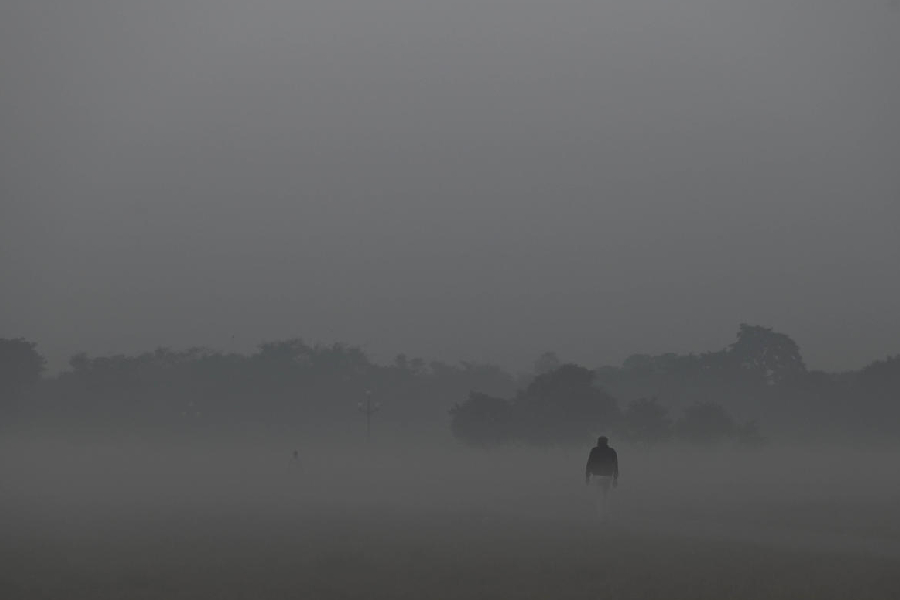The city’s air quality again dropped to “very poor” in at least three stations on Friday, after a brief interlude during which the air quality had improved to “good” and “satisfactory” levels.
At 11am on Friday, the air quality monitoring stations in Ballygunge, Fort William and the Victoria Memorial recorded “very poor” air.
The stations in Bidhannagar, Rabindra Bharati University (BT Road) and Rabindra Sarobar recorded “poor” air. The results of the Jadavpur station was not available at that time.
By 5pm, there was a marginal improvement and all seven monitoring stations recorded “poor” air.
The dominant pollutant, as revealed by the data of all the monitoring stations, was PM2.5, so called because the particulates are less than 2.5 micron in size.
PM2.5 particulates are toxic because they are coated with metals or toxic gases, said Anumita Roy Chowdhury, air quality management specialist and executive director at the Centre for Science and Environment.
“PM2.5 are such fine particles that they can breach through the barriers in the body and mix with the bloodstream. They can then travel with blood and hit any organ,” said Roy Chowdhury.
PM2.5, she said, is emitted by industries, power plants and vehicles. The particulates also form in the air when gases like oxides of nitrogen or sulphur undergo chemical reactions in the air.
Metro reported on Friday that poor air quality and change in weather have enabled viruses to run riot. Many people are down with fever and sore throat. A number of people are admitted to hospital, some in critical care units, with acute respiratory distress.
According to the Central Pollution Control Board, “poor” air can lead to “breathing discomfort to most people on prolonged exposure” and “very poor” air can cause “respiratory illness on prolonged exposure”.
Arup Halder, a city-based pulmonologist, said poor air can trigger a host of ailments, even in people without any medical condition.
“Polluted air can exacerbate asthma and COPD. People with COPD may even require hospitalisation,” he said. “Those without any illness can also develop respiratory tract infections.”
Doctors said children and the elderly should take extra protection as they tend to be more vulnerable to polluted air than others. “Wear a mask if the air quality drops to moderate or worse. Avoid morning walk. Walk in the afternoon,” a doctor said.
Calcutta’s air quality remained “poor” and “very poor” in the first few days of this month. It then improved to “good” and “satisfactory” levels, only to worsen to “moderate” and “poor”. It further dropped to “very poor” in some places on Friday morning.
A scientist with the state pollution control board said the brief interlude of “good” and “satisfactory” air was mainly because of an increase in wind speed that blew away the pollutants. Winter is usually marked by slow wind, lack of rain and cold air, factors that trap pollutants close to the ground.
